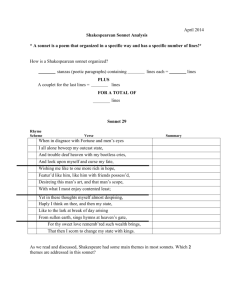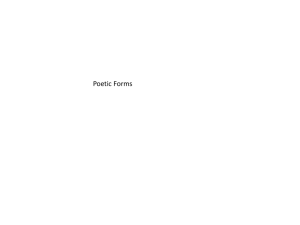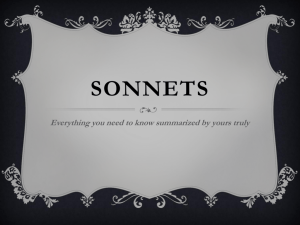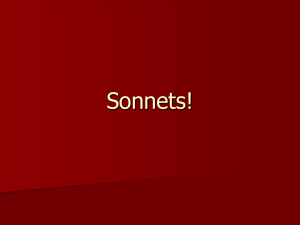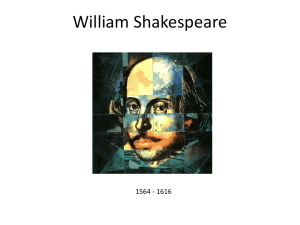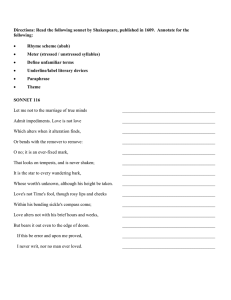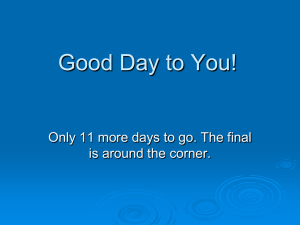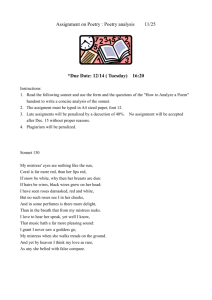Sonnet/Renaissance Poetry Study Guide
advertisement
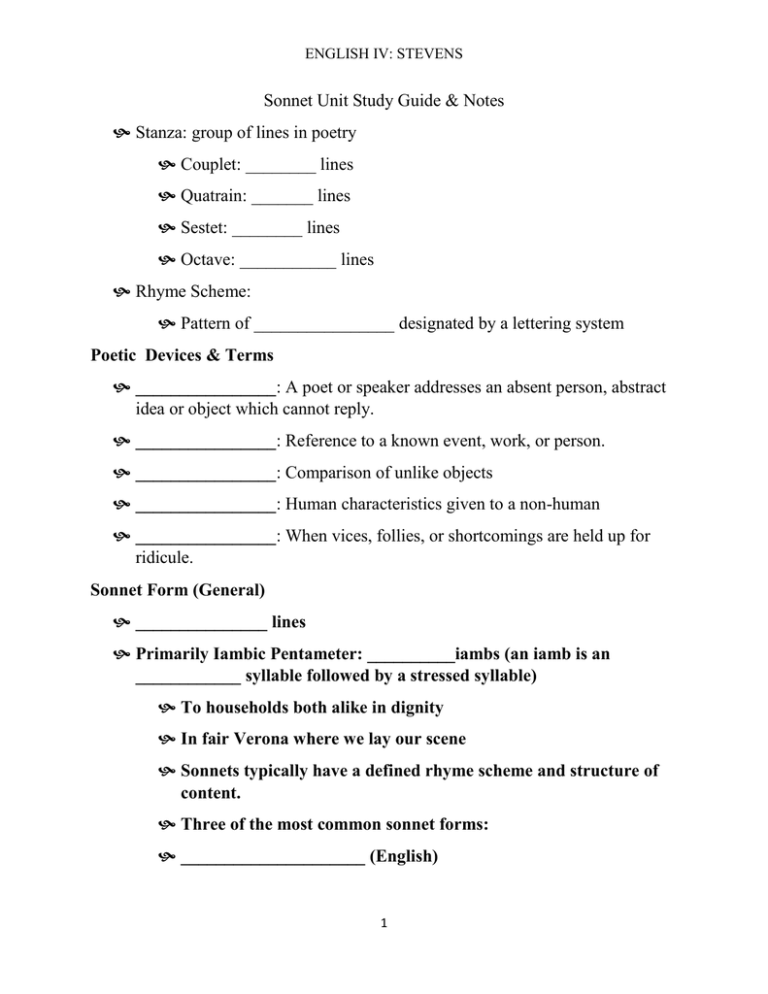
ENGLISH IV: STEVENS Sonnet Unit Study Guide & Notes Stanza: group of lines in poetry Couplet: ________ lines Quatrain: _______ lines Sestet: ________ lines Octave: ___________ lines Rhyme Scheme: Pattern of ________________ designated by a lettering system Poetic Devices & Terms ________________: A poet or speaker addresses an absent person, abstract idea or object which cannot reply. ________________: Reference to a known event, work, or person. ________________: Comparison of unlike objects ________________: Human characteristics given to a non-human ________________: When vices, follies, or shortcomings are held up for ridicule. Sonnet Form (General) _______________ lines Primarily Iambic Pentameter: __________iambs (an iamb is an ____________ syllable followed by a stressed syllable) To households both alike in dignity In fair Verona where we lay our scene Sonnets typically have a defined rhyme scheme and structure of content. Three of the most common sonnet forms: _____________________ (English) 1 ENGLISH IV: STEVENS _____________________ (Originally an Italian form, but modified by Englishmen Sir Phillip Sidney) _____________________ A variation of the English form Sonnet Form (Shakespearean): Shakespearean/English Sonnet: 14 lines ________________Pentameter Rhyme Scheme: ABABCDCDEFEFGG _______________ quatrains develop the problem, conflict, or issue Final ________________ resolves, solves, or answers Shakespearean Sonnets: As we read these sonnets in class, you will break them down by rhyme scheme, stressed v. unstressed syllables, and what each means, i.e. the theme, tone, and stanza pattern. We will be noting the vocabulary terms above, when they are used, and the problem and resolution in each respective sonnet. THIS WILL BE COLLECTED FOR A GRADE! 2 ENGLISH IV: STEVENS Shakespearean Sonnets for Breakdown SONNET 29 When, in disgrace with fortune and men's eyes, I all alone beweep my outcast state, And trouble deaf heaven with my bootless cries, And look upon myself, and curse my fate, Wishing me like to one more rich in hope, Featur'd like him, like him with friends possess'd, Desiring this man's art and that man's scope, With what I most enjoy contented least; Yet in these thoughts myself almost despising, Haply I think on thee, and then my state, Like to the lark at break of day arising From sullen earth, sings hymns at heaven's gate; For thy sweet love remember'd such wealth brings That then I scorn to change my state with kings. SONNET 130 My mistress' eyes are nothing like the sun; Coral is far more red than her lips' red; If snow be white, why then her breasts are dun; If hairs be wires, black wires grow on her head. I have seen roses damask'd, red and white, But no such roses see I in her cheeks; And in some perfumes is there more delight Than in the breath that from my mistress reeks. I love to hear her speak, yet well I know That music hath a far more pleasing sound; I grant I never saw a goddess go; 3 ENGLISH IV: STEVENS My mistress, when she walks, treads on the ground: And yet, by heaven, I think my love as rare As any she belied with false compare. SONNET 116 Let me not to the marriage of true minds Admit impediments. Love is not love Which alters when it alteration finds, Or bends with the remover to remove: O no; it is an ever-fixed mark, That looks on tempests, and is never shaken; It is the star to every wandering bark, Whose worth's unknown, although his height be taken. Love's not Time's fool, though rosy lips and cheeks Within his bending sickle's compass come; Love alters not with his brief hours and weeks, But bears it out even to the edge of doom. If this be error and upon me proved, I never writ, nor no man ever loved. 4
